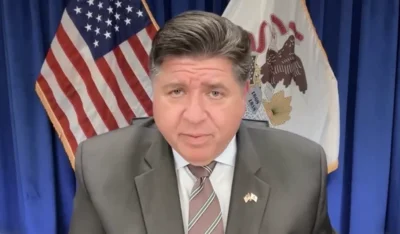Chicago Mayor William Hale Thompson called out the National Guard to quell a race riot in the city on July 27, 1919. | Wikimedia Commons
Chicago Mayor William Hale Thompson called out the National Guard to quell a race riot in the city on July 27, 1919. | Wikimedia Commons
July 23, 1888 - Chicago. Birthdate of mystery novelist Raymond Chandler occurs. After the former Royal Flying Corps pilot and oil company executive was grounded (career-wise) by the Great Depression, Chandler, then 45, literally wrote his way out of bad fortune. The author of such books as “The Big Sleep,” “Farewell My Lovely” and “The Long Goodbye” turned from novels to movie screenplays by the 1950s, according to History.com. Many of his books later became films.
July 23, 1975 - Canton. F3 tornado devastates the town of Canton. Only a year after the 1974 Super Outbreak, a miniature outbreak consisting of three funnels struck Canton and the surrounding region during the afternoon. Although rated at just F3 (the Fujita scale’s midpoint, with winds between 158-206 mph), the damage was significant. As GenDisasters.com recounts, the storm involved multivortex tornadoes that flattened a cornfield, ignited a warehouse fire, and damaged or destroyed hundreds of businesses and homes. Two fatalities were reported as part of the $25 million damage tally.
July 23, 1971 - Decatur. Bluegrass singer Alison Krauss is born. With the release of her first Billboard Hot 100 hit single, a 1995 cover of Keith Whitley’s “When You Say Nothing At All,” Krauss gained momentum in a career that began a decade prior when she signed her first record deal with Rounder Records, as Biography.com states. A prolific artist with more than a dozen albums and 27 Grammies to her credit, Krauss has generated hit singles with both Brad Paisley (“Whiskey Lullaby”) and Kenny Rogers (“Buy Me a Rose”). Her work is credited with reinvigorating the Bluegrass music movement.

Alison Krauss was born in Decatur.
| By Original photo by Forrest L. Smith, III. Cropped by Sven Manguard at en.wikipedia (File:Alison Krauss MerleFest 2007 01.jpg) [Public domain or Public domain], via Wikimedia Commons
July 24, 1915 - Chicago. A steamboat accident on the Chicago River sends hundreds to their deaths. The Eastland was a poorly designed vessel, as History.com asserts in its retelling of the tragedy, which claimed the lives of some 800 passengers during a summer picnic excursion between the Windy City and the Lake Michigan shoreline. The problem may lie in the renovation to the 10-year-old boat in 1913, which expanded it from carrying 650 people to 2,500. Despite a naval engineer’s warning, the boat continued operating, right until the day a massive crowd on board tipped the boat right next to the dock, causing her to sink.
July 25, 1942 - Swansea. Town dedicates the first U.S. memorial to those killed at Pearl Harbor. Less than a year after Japan’s attack on the U.S. Naval Base at Pearl Harbor in Hawaii, a monument was constructed in Illinois. Its builder, George Hoffman, was a direct descendant of early surveyor and mapmaker John Messigner, notable for his surveys of Illinois territory in the early 19th century, according to the Illinois History Journal’s digital archives.
July 25, 1873 - Oglesby. Birthdate of Illinois Gov. Richard Oglesby. Although he was born in Kentucky, by age 8 the future Illinois governor had moved to Decatur with his uncle where he later worked as a farmhand, ropemaker and carpenter, according to a website aimed at visitors to his mansion. He saw combat duty in both the Mexican-American War and the Civil War, advancing to the rank of general. Oglesby also served as a three-term governor, although he left during his second term to take a U.S. Senate seat, which he held from 1873-79. With a population of just under 3,800, the town of Oglesby bears his name.
July 27, 1919 - Chicago. Racial violence strikes the city, claiming 38 lives. Nearly half a century before the racial unrest across the American South, Chicago saw its worst period of racial tension around this date in 1919. Historians blame the Great Migration, an influx of the descendants of freed slaves, which created competition for jobs with immigrants from Europe, according to the Encyclopedia of Chicago. The conflict was possibly exacerbated by Chicago Mayor William Hale Thompson’s delay in requesting National Guard assistance.






 Alerts Sign-up
Alerts Sign-up